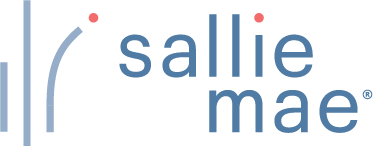
-
United States
-
United Kingdom
|
|
You might be using an unsupported or outdated browser. To get the best possible experience please use the latest version of Chrome, Firefox, Safari, or Microsoft Edge to view this website. |

To pay off student loan debt and take charge of your finances, first step back and figure out what loans you have, what interest rates they charge and how long you have to repay them.
Once you understand your loan’s terms, you can choose a payoff strategy that works for your budget and financial goals. Here’s how to do it.
MMA

MMA
Money market accounts pay rates similar to savings accounts and have some checking features.
MMA
Is a money market account worth it? That depends. If you’re considering one, keep these pluses and minuses in mind.
- Receive some of your bank’s best rates.
- Access funds more easily than with most savings accounts, which might be helpful in an emergency.
- Have a safe place to keep a large chunk of money, protected by FDIC insurance.
- Funds might be too easy to spend.
- Some accounts require high minimum balances to open or avoid fees.
- In many cases, savings accounts pay just as much interest.
CheckingAccounts

Chime Spending Account
at Chime, Deposits are FDIC Insured
Chime Spending Account
N/A
With $0 minimum balance
Chime is a mobile checking account that has no monthly fees, minimum balance requirements or overdraft fees, and you have access to more than 38,000 fee-free MoneyPass and Visa Alliance ATMs. Through Chime’s early direct deposit service, customers can get their paychecks up to two days earlier than through direct deposit at most banks.
- This account works best for people who don’t write many checks or make cash deposits.
- If you need to write a check, Chime has an online feature that creates and mails one on your behalf.
- For cash deposits, you’ll need to use a third-party service.
TravelInsuranceCompanies

Travel Insurance
Advantages of overseas travel insurance
Travel Insurance
1010
Something Here
- All actions you engage in
- Your travel locations
- The travel season that you will be touring
- Your physical health
- Any specific prescription medications you need
- Modifying your thoughts for personalized purpose
- Occurrence of war
- Pre-existing health concerns
- Harm by customs
- Self-induced sickness
OnlineBrokers

Online Brokers
Interactive brokers
Online Brokers
$0
N/A
$100
Minimum $50
$1000
Maximum Value $10,000
Interactive Brokers has long been a popular broker for advanced traders, but in 2019 the company launched a second tier of service — IBKR Lite — for more casual investors.
With IBKR Lite, you get unlimited free trades of stocks and exchange-traded funds that are listed on U.S. exchanges. If you’re interested in trading other investments, including options, futures, mutual funds, fixed income and more, you can do that on 125 markets in 31 countries with a Lite account, but the trading costs will be the same as what IBKR Pro investors pay.
As the name implies, IBKR Pro is geared toward advanced traders. If that’s you, you’ll probably like the broker’s per-share pricing of $0.005 per share (the minimum is $1), advanced trading platform, unmatched range of tradable securities — including foreign stocks — and ridiculously low margin rates.
- Large investment selection.
- Strong research and tools.
- Over 4,300 no-transaction-fee mutual funds.
- The website is difficult to navigate.
- Inactivity fees on IBKR Pro.
PersonalLoans
Personal Loan
Forbes may earn a commission on sales made from partner links on this page, but that doesn't affect our editors' opinions or evaluations.
Personal Loan
5
Out of 8
$100
Due tomorrow
10-14
Avg 11.29
5
Out of 8
$100
Due tomorrow
10-14
Avg 11.29
Personal loans are unsecured, which means they are not secured against an asset such as your home.
Secured loans, on the other hand, are secured against your home which means if you default, the lender has the legal right to repossess your home.
- You only make one payment each month to a single lender, making managing your finances more manageable and straightforward
- You may be able to reduce the amount of interest you’re paying on your debt – rates are most competitive for loan amounts of over £7,500
- Reducing the amount of interest will help you pay off your debts faster
- Not all lenders will allow you to use a personal loan to consolidate debt, so check before you apply
- The most competitive personal loan rates are only offered to those with good credit scores, so if yours isn’t up to scratch you may be offered a higher rate
- Depending on the interest rate you are offered, monthly payments could end up being higher than they were before
PrivateStudentLoans

Consolidating Student Loans
Eeasier debt management
Consolidating Student Loans
0
N/A
5%
A longer repayment term means you’ll pay less each month. But you won’t really save money since you’ll pay more in interest over time.
- Snagging a lower interest rate on your loans
- Adjusting your monthly payments with new repayment terms
- Switching to a new lender with better benefits
- Losing access to federal programs and plans
- Giving up flexibility in your repayment terms
- Having to meet credit and income requirements
Mortgage Lenders

Rate Mortgages
adjustable-rate mortgage
Rate Mortgages
8%
For fixed period
11.25%
For fixed period
83%
As per recent survey
In some cases, choosing an ARM over a fixed-rate mortgage could be a solid financial decision, potentially saving you thousands of dollars. You should always ask your lender to explain ARM risks and exactly how much the payments could increase.
- Low payments in the fixed-rate phase
- Flexibility
- Rate and payment caps
- Things don’t go as planned
- Prepayment penalty
- ARMs are complex
BanksForSmallBusiness

Banks For Small Business
What Are Online Banks?
Banks For Small Business
25
Based on recent count
Traditional banks and credit unions with branches typically let customers access their accounts via the internet, too. But online banks offer primarily mobile access. You won’t meet a banker face to face, but with a mobile device or computer, you can reach your account anytime.
- Lower fees
- Better interest rates
- No branches
- Cash can be hard to deposit
HighYieldSavingsAccount

High Yield Savings Account
Savings accounts are a safe place to store cash and can earn close to 2% interest.
High Yield Savings Account
5%
Yearly Fixed
$4,250
For fixed period
Here is a side-by-side comparison of savings accounts at brick-and-mortar and online banks. Online accounts tend to offer interest rates that are significantly higher than the national average of 0.06%, and many offer long hours for customer service via phone as well. But if you prefer in-person assistance, you might choose a traditional bank.
- High interest rates.
- Good short- to medium-term parking for savings, like an emergency fund.
- Funds are federally insured.
- Have similar things to consider before opening an account, such as fees, minimum balances, ATM access and whether you can link accounts.
- Cash management accounts are typically provided by nonbank financial service providers (like robo-advisors or investment firms) while high-yield savings accounts are provided by banks.
- High-yield savings accounts have a federally regulated limit on the number of withdrawals a customer can make; CMAs aren’t restricted by number of withdrawals.
- Federal insurance is provided using different methods.
SavingsAccounts

Savings Accounts
These savings accounts are portable and convenient, but have some drawbacks.
Savings Accounts
5%
Yearly Fixed
- Contributions to HSAs generally aren’t subject to federal income tax, and the earnings in the account grow tax-free.
- Unspent money in an HSA rolls over at the end of the year so it’s available for future health expenses.
- Pre-Tax Contributions
- Tax-Deductible After-Tax Contributions
- Tax-Free Withdrawals
- Pressure to save
- Taxes and penalties
- Recordkeeping
IDTheftProtectionServices

ID Theft Protection Services
Identity Theft Protection
ID Theft Protection Services
$10
Listsa
21123
sd,masd,
03edw
askjda
- You’re already the victim of at high risk of it; for instance, if your Social Security number has already been disclosed in a data breach or you’ve lost your Social Security card.
- You don’t want to freeze your credit reports.
- Monitoring
- Alerts
- Recovery
- In 2015, the Federal Trade Commission fined the company $100 million for failing to secure customers’ data and for deceptive advertising.
- LifeLock contracts with Equifax to provide some of its credit monitoring. The double whammy of recent data breaches at Equifax and LifeLock should give you pause.
CarInsuranceCompanies
Car Insurance Companies – [Forbes review]
Car Insurance
Car Insurance Companies – [Forbes review]
Good
As per recent study
Very Good
78%
A car insurance quote is an estimate of how much you’ll pay for a policy. An insurance quote is calculated based on the information you provide, including your age, the car you drive, your driving history and where you live, among other factors.
Insurers each use their own unique formula to calculate a car insurance quote, so even if you provide the same information to Geico, Progressive or any other company, no two quotes will be the same. The more auto insurance quotes you get, the better chance you’ll have of finding the cheapest car insurance company for you.
- Basic information such as your name, address, occupation and birthdate.
- Your current auto insurance company, if you have one.
- Driver’s license information for you and anyone else on the policy
- Vehicle information, including whether you own or lease your car, vehicle identification number and any safety features.
- Driving history for the past five years for all drivers on the policy, including tickets, accidents and other violations. Bear in mind — any company you choose will find your driving history before issuing a policy, so it’s best to be upfront to get an accurate car insurance quote.
LifeInsuranceCompanies

Life Insurance Companies
Group Life Insurance
Life Insurance Companies
20%
As per the requirement
Maybe you’ve been meaning to buy life insurance but just haven’t gotten around to it. If you recently got a new job, or if it’s open enrollment season, you might have a chance to get life insurance through your employer at little or no cost.
Many employers offer free life insurance as a benefit, known as group life. All you have to do is sign up, and sometimes enrollment is automatic.
Many people opt to buy more insurance, known as supplemental life insurance, through such plans. In fact, 44% of all life insurance policies in force in 2015 were through groups, including workplaces, churches and other associations, according to the American Council of Life Insurers.
Is buying group life insurance through your work a good idea? Here is a rundown of the advantages and disadvantages.
- There are three main advantages to buying supplemental group life insurance through your employer: convenience, price and acceptance.
- Convenience is key to those who know they need life insurance but haven’t bought it yet. Getting coverage through work can be the easiest way to protect your family.
- It also can be a good deal, sometimes offering rates you can’t beat by shopping around.
- Finally, people with serious medical conditions may qualify for a much better rate through the group policy than they could get on their own. A medical exam is not required, although
Most people are unlikely to stay with the same employer for their entire career, which brings up the first major disadvantage of tying your life insurance to your job. You might be able to convert your group policy to individual life insurance if you leave, but the cost could go up significantly.
Your next job might not offer group life insurance. You could go out and buy an individual life insurance policy, in that case. But the cost of life insurance rises as you age, and you never know when you might develop a medical condition that could seriously raise your rates or even make it impossible to get coverage.
RoboAdvisors

Robo Advisors
Betterment
Robo Advisors
2.5%
5%
$1,000
Betterment Digital has no account minimum and charges 0.25% of assets under management annually. Betterment Premium provides unlimited phone access to certified financial planners for a 0.40% fee and $100,000 account minimum.
- Multiple investment options.
- Fractional shares mean all your cash is invested.
- Robust goal-based tools.
- No direct indexing.
PersonalLoansForBadCredit

Personal Loans For Bad Credit
Your options to borrow include a product that bridges the worlds of lending and saving.
Personal Loans For Bad Credit
4.50%
Quatrely
$49.99
On Agreement
N/A
YES
The interest rate on CD loans is much lower than those charged by credit cards, unsecured loans or riskier loans —like payday or title loans. That’s because it’s a less risky loan for a bank to provide, since the loan is secured by money that you have already deposited.
- Low interest rates
- Easy qualification.
- Funds are accessible quickly.
- Budget-friendly installment payments.
- You must already have a CD or be willing to open one.
- You often must pay an early withdrawal fee.
- Not all institutions offer CD loans
DebtConsolidationLoans

Debt Consolidation Loans
Consolidating debts
Debt Consolidation Loans
5%
Half-Yearly
$50
Only applicable for Online registration
$1000
Need to present documents
Yes
Two common debt consolidation approaches include getting a debt consolidation loan or a balance transfer card. Both types require a hard inquiry on your credit, which can lower your credit score by a few points.
- Improved credit score
- Higher Margins
- Low Risks
- High-interest rate
- Low yields
StudentLoanRefinance

Student Loan Refinance
Refinancing Student Loans
Student Loan Refinance
7.5%
Quaterly
4%
Yearly
Whether you’ve got private or federal student loans, refinancing with a private lender can be a great way to restructure your debt. Here are the main benefits of refinancing your student debt.
- Snagging a lower interest rate on your loans
- Adjusting your monthly payments with new repayment terms
- Switching to a new lender with better benefits
- Losing access to federal programs and plans
- Giving up flexibility in your repayment terms
- Having to meet credit and income requirements
HomeEquityLendersAndRates

Home equity loan
Interactive brokers
Home equity loan
Minimum $1,000
Maxiumum $1,00,000
5%
Yearly
0
N/A
Lenders may have stricter home equity loan requirements, such as higher credit score minimums and less flexibility for higher debt-to-income ratios. Plus, your loan-to-value (LTV) ratio should be 85% or lower, meaning you still have at least 15% equity in your home after tapping equity.
- You’ll pay a fixed interest rate
- You’ll have lower borrowing costs
- You can use the money for virtually any purpose
- Your interest payments may be tax-deductible
- You’ll pay higher rates than you would for a HELOC.
- Your home is used as collateral
- You’ll pay closing costs
- You’ll have two mortgage payments
More from


![Car Insurance Companies – [Forbes review]](http://fbadvisor-dev.testingpe.com/wp-content/uploads/2020/07/100-e1596018201728.jpg)
